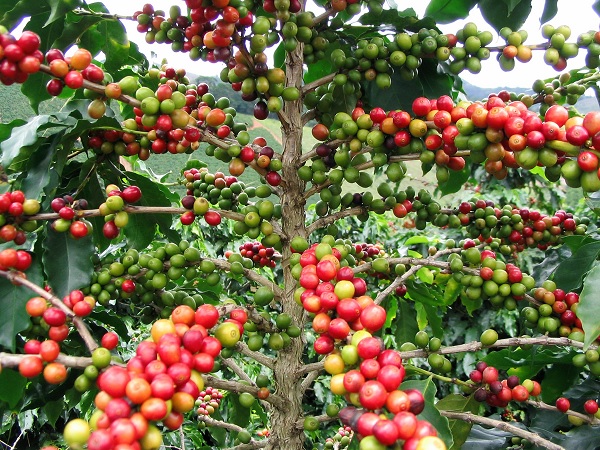
Heavy rain hits coffee output in Karnataka, Tamil Nadu
 Bengaluru:(IANS) Torrential rains due to a cyclonic storm and deep depression in the Bay of Bengal in the last 10 days have damaged coffee plantations in Karnataka and Tamil Nadu, an official said on Tuesday.
Bengaluru:(IANS) Torrential rains due to a cyclonic storm and deep depression in the Bay of Bengal in the last 10 days have damaged coffee plantations in Karnataka and Tamil Nadu, an official said on Tuesday.
Excessive rains have affected production by 20 percent, as coffee plantations in Karnataka and Tamil Nadu suffered damage when they were ready for harvesting,” Karnataka Planters’ Association chairman K. Kurian told reporters here.
Though the northeast monsoon is normal around this time in Tamil Nadu, the deep depression led to downpour in southern Karnataka across the Western Ghats where coffee is grown in shade on undulating hills and slopes of the terrain.
In neighbouring Tamil Nadu, coffee is grown largely in Yercaud.
“Incessant rains and strong surface winds have led to dropping and splitting of ripe coffee berries from plantations in our estates across the state even before we could harvest them. Due to slush and water logging, average picking has also reduced across plantations and wet conditions will delay drying them,” Kurian said.
Karnataka accounts for about 70 percent of the coffee production in the country followed by Kerala and Tamil Nadu.
“Though the Coffee Board has projected 3,55,600 tonnes in its post-blossom estimation for this fiscal (2015-16), comprising 2,45,300 tonnes of Robusta and 1,10,300 Arabica varieties, we are unlikely to achieve the target,” Kurian noted.
As is their wont, plantations were also affected due to delay in blossom rains early this year and unseasonal rains in April, followed by prolonged dry spell from June to September, as the southwest monsoon was 25-30 percent deficit this year.
“The board’s production estimate for Robusta is also high, as this coffee year (2015-16) is an aoff year’ for its beans. Similarly, Arabica output will be less as plantations have not yet come out of high white-stem borer disease and lot of its stems were uprooted to contain the damage,” he said.
The country’s coffee production in last fiscal (2014-15) was 3,27,000 tonnes, comprising 1,58,475 tonnes of Robusta and 98,000 tonnes of Arabica, while Karnataka accounted for 2,33,230 tonnes, with 1,72,830 tonnes of Robusta and 83,670 tonnes of Arabica.
The KPA is holding its 57th annual conference here over the next two days along with the United Planters’ Association of South India (Upasi) to deliberate on various issues pertaining to the commodity plantation sector spanning coffee, tea, rubber and spices, including pepper and cardamom.

